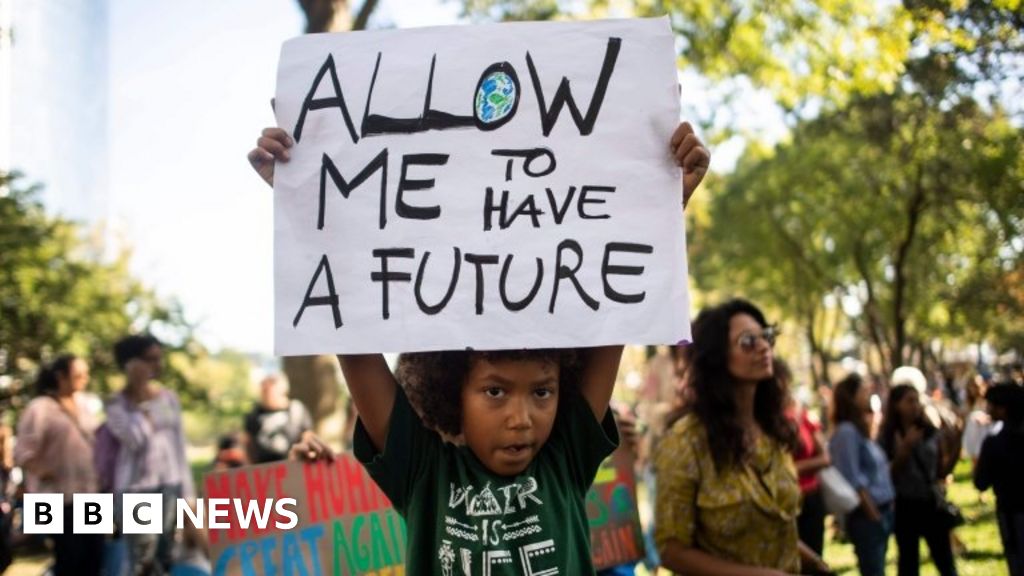Overdramatizing Climate Change Doesn't Help Anybody
Thirty-four years have flashed by, along with seven different presidents, since climate change has been flagged as an emergency. You’d think by now we’ve had enough time to realize climate change is a natural process.
Keeping tabs on Earth’s climate is important but has become that one annoying song you hear on repeat. Despite all the claims to fame warning against the Earth’s rising temperature, what’s happening may simply be the result of something quite natural.
It’s a known fact that the Earth naturally changes temperature. That’s why the Earth has ‘ice ages’ and ‘interglacials’. According to the NOAA (National Oceanic and Atmospheric Administration), “Earth has experienced cold periods (or “ice ages”) and warm periods (“interglacials”) on roughly 100,000-year cycles for at least the last 1 million years”.
Since the last ice age was roughly 20,000 years ago we’re nowhere near another ice age, which makes sense due to our warming planet. The planet will continue to get toastier the further we are into this cycle. Therefore, the cry for alarm may very well be an overdramatized sales pitch put on a natural process that we have no control over.
Of course, the haters are always gonna hate and throw around ideas like how the world is warming up too quickly and act as if the Earth hasn’t ever changed temperature before. These people often bring up facts such as, “2021 was the world’s 6th warmest year on record since 1880”. However, this just fits into our naturally rising temperature theory. As more time passes from the last ice age, the warmer the Earth will get. Since 2021 is farther from the last ice age than 1880, then the Earth will be slightly warmer.
Another argument often tossed around is the idea of greenhouse gases and how they are contributing to climate change. The haters once again act as if greenhouse gases didn’t exist before we inhabited the Earth. Greenhouse gases are gases that let sunlight in, but not out, which causes heat to be trapped on the Earth. Greenhouse gases are completely normal and without greenhouse gases, we wouldn’t be able to survive on Earth.
The British Geological Survey states, “Without the natural greenhouse effect, the heat emitted by the Earth would simply pass outwards from the Earth’s surface into space and the Earth would have an average temperature of about -20°C”. This clearly shows that not only are greenhouse gases natural, but they’re also necessary. I have a feeling I’m not the only one who wouldn’t want to live in constant -20°C weather. I don’t own enough coats or hot cocoa for that.
Since greenhouse gases are natural the Earth has a natural way of dealing with them. We’re going to focus on a greenhouse gas called carbon dioxide. Carbon dioxide is naturally released into the atmosphere from volcanoes, animals, and plants breaking down. To make sure not too much carbon dioxide gets stuck in the atmosphere plants have adapted to use carbon dioxide in the creation of their food and oxygen, meanwhile, the ocean naturally absorbs the majority of the extra carbon dioxide all on its own.
Upon hearing this, you may wonder if plants and the ocean have a limit. Well, you’re not the first to wonder this either. Two different studies have wondered about this same thought and decided to test these theories out. One study focused on the efficiency of house plants converting carbon dioxide into oxygen. Meanwhile, the other study focused on exactly how much carbon dioxide the ocean can contain.
The study that focused on house plants tested three different types of common house plants. The scientists then placed the plants into three different types of lighting. The first light was artificial, the second light was slight exposure to natural light, and the third light was full exposure to natural light. The scientists then measured how much carbon dioxide the plants naturally absorbed based on how much fun the plants had in the sun.
Since plants use carbon dioxide and light to create their food the results showed plants have a positive correlation between the amount of light received and the amount of carbon dioxide used. The results supported this because the plant that received artificial light used the least amount of carbon dioxide due to having less light. As you could have guessed, this means the plant that received only natural light absorbed the most carbon dioxide. This is because the Earth discovered a natural way to regulate natural carbon dioxide within the atmosphere.
The study that focused on the amount of carbon dioxide the ocean can absorb used equation after equation to figure out this exact question. The data used in the study was based on the Atlantic Ocean, but the equations used allow their measurements to be generalized. To make sure the equations could be generalized the study had to keep in mind several factors. These factors included location, water temperature, and water depth, just to name a few off the list.
This study resulted in some good news and some bad news. The bad news is the ocean does have a limit on how much carbon dioxide it can absorb. The good news is the study found the ocean can take in between 9% and 11% more carbon dioxide than we previously thought. The study didn’t state how close we are to hitting this limit, but the tone indicated there was no need for immediate alarm. The ocean is still naturally taking in carbon dioxide, just as it always is.
Based on the studies mentioned above, it appears that we don’t have much to currently worry about. However, if for some reason you’re a worry wart and think the world is going to end tomorrow, then there are some things you can do to reduce your carbon dioxide production. You could plant a tree outside, turn off lights during the day, or not buy more food than you need. In the end, do whatever feels right for you. You shouldn't let others pressure you into jumping on the bandwagon of anything climate change related, especially since it may just be an overdramatization of what the Earth has always naturally done.



Comments
Post a Comment